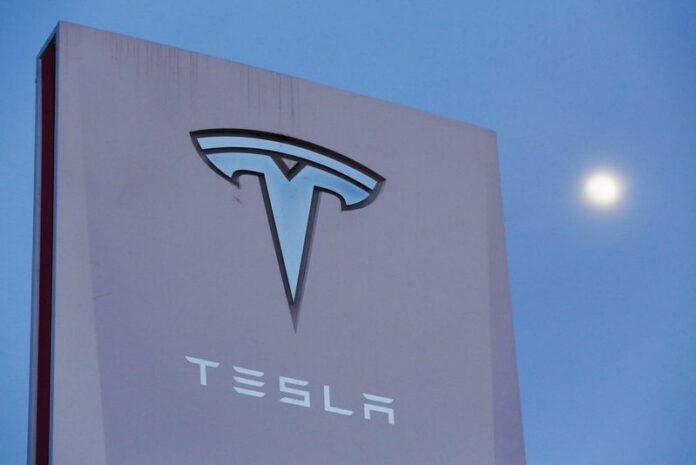JPMorgan warns of significant downside for Tesla, maintaining an Underweight rating and raising its price target to $130 as the company faces potential full-year delivery declines.
JPMorgan Issues Cautionary Outlook on Tesla Stock
In a recent note, JPMorgan issued a stark warning about Tesla (NASDAQ: TSLA), maintaining an Underweight rating on the stock and revising its price target to $130 from $115. Despite the revised target, the bank still sees a significant downside for Tesla, which closed at $249.02 per share on Wednesday, a price that is nearly double the bank’s forecast.
JPMorgan’s caution stems from weaker-than-expected third-quarter delivery numbers and concerns that Tesla may face its first-ever full-year decline in unit volumes, a development that could severely impact its hypergrowth valuation and investor confidence.
3Q Deliveries Fall Short of Investor Expectations
Tesla reported global deliveries of 464,000 units for the third quarter of 2024, slightly below JPMorgan’s estimate but generally in line with Bloomberg consensus. However, analysts believe that these figures may have fallen short of broader investor expectations, contributing to a 3.5% drop in Tesla’s stock price on Wednesday.
“Tesla shares fell -3.5% Wednesday vs. the flat market, ostensibly due to the release of sales and production figures that indicated global deliveries tracked modestly lower than expected,” JPMorgan noted in the report.
While the numbers were close to consensus estimates, they raised concerns about Tesla’s growth trajectory. The company has consistently delivered strong growth in unit volumes, but the softer-than-expected third-quarter numbers now put Tesla at risk of not achieving full-year growth for the first time in its history.
Full-Year Delivery Decline Could Challenge Growth Stock Status
JPMorgan analysts highlighted that Tesla’s inability to grow its full-year unit volumes would be a first for the company and could prompt investors to reevaluate Tesla’s status as a high-growth stock. This shift could have significant implications for Tesla’s valuation, which is currently based on expectations of continued hypergrowth in unit volumes and revenue.
“The continued softer trend now appears to position Tesla to potentially not grow full-year unit volumes for the first time in its history,” the bank stated, adding that this could cause more investors to question the company’s ability to sustain its growth stock status.
Tesla has long been viewed as a company with immense growth potential, supported by rapid increases in production, sales, and market share in the electric vehicle (EV) industry. However, the company’s recent performance metrics have not aligned with these expectations, creating a disconnect between Tesla’s fundamentals and its stock price.
The Disconnect Between Performance Metrics and Stock Price
JPMorgan analysts pointed out that despite a steady decline in key performance metrics, Tesla’s stock has remained resilient over the past two years. While the stock price has remained flat to slightly higher during this period, expectations for Tesla’s unit volumes, revenue, gross margins, and free cash flow have diminished significantly.
“While TSLA shares are flat to slightly higher over the past two years, expectations have crumbled for every performance metric,” JPMorgan stated. The bank referenced significant declines in unit volumes, revenue, gross margin, and free cash flow as evidence of a growing gap between the company’s fundamentals and its stock price.
One of the most alarming figures is Tesla’s earnings before interest and taxes (EBIT) projection for 2024, which has been revised down to $7.3 billion. This represents a 74% drop from the $28 billion expected just two years ago for the same period, highlighting the extent to which Tesla’s financial outlook has deteriorated.
Investor Sentiment and Future Stock Performance
Despite these concerning trends, Tesla’s stock has shown remarkable resilience in the market. The company’s strong brand, loyal investor base, and dominance in the EV space have helped to support its stock price, even as performance metrics have weakened.
However, JPMorgan expressed skepticism that Tesla’s potential full-year delivery decline will be an “ah-ha” moment for investors. Instead, the bank believes that this development could further pressure the stock, particularly if investors begin to adjust their expectations for Tesla’s future growth potential.
JPMorgan’s revised price target of $130 reflects its belief that Tesla’s stock is currently overvalued given the company’s weakening financial outlook. While Tesla continues to lead the EV market, the bank’s analysts are concerned that the disconnect between the company’s fundamentals and its stock price may not be sustainable in the long term.
Conclusion: Challenges Ahead for Tesla
Tesla faces a challenging road ahead as it contends with slowing delivery growth, weakening financial metrics, and a stock price that appears to be disconnected from its fundamentals. JPMorgan’s warning and revised price target underscore these concerns, suggesting that Tesla’s stock may face additional pressure in the months ahead.
For investors, Tesla’s recent delivery numbers and JPMorgan’s analysis raise important questions about the company’s ability to maintain its high-growth status in an increasingly competitive EV market. While Tesla has defied expectations in the past, the current trends suggest that the company may need to adjust its strategy to align more closely with its evolving financial outlook.


